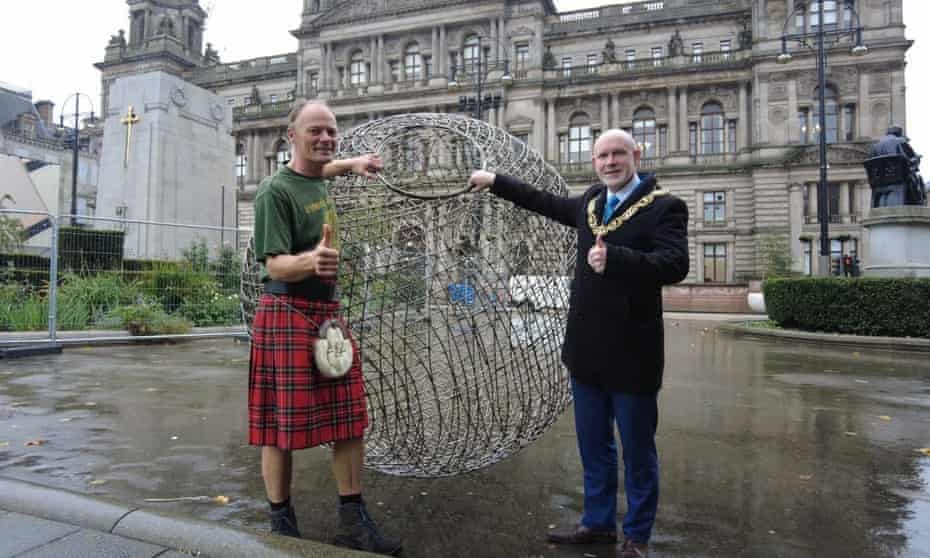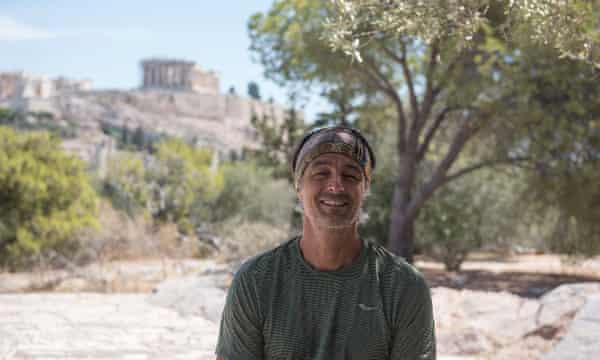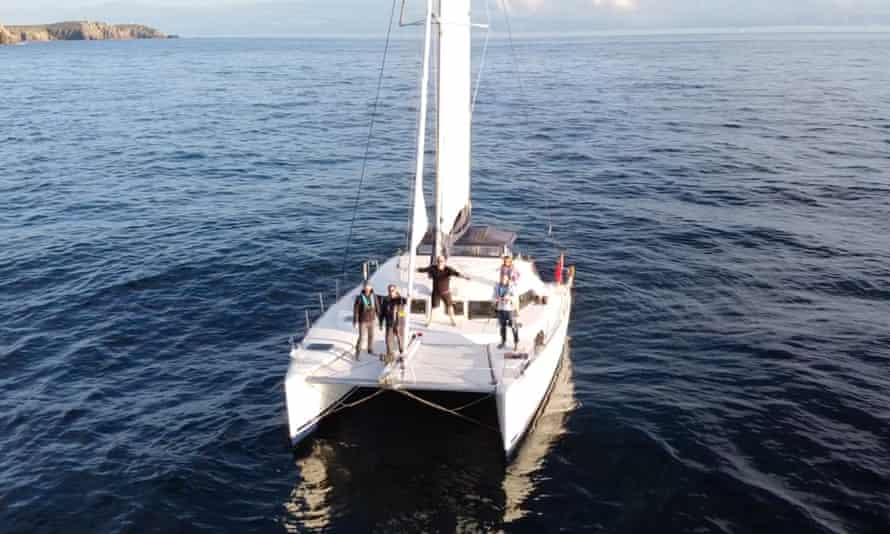Extract from The Guardian
Arnd Drossel one of many travelling to the summit attempting to raise awareness of the climate crisis.

The Lord Provost of Glasgow and Arnd Drossel in Glasgow with the sphere made of steel wire.
Last modified on Fri 29 Oct 2021 06.08 AEDT
Arnd Drossel has spent the past three months rolling around inside a 160kg steel ball.
The German environmental activist left his home in Paderborn on 30 July in the giant contraption resembling a hamster ball that he made with his son.
Now he is finally approaching Glasgow in time for the UN’s Cop26 climate summit with a collection of environmental promises he has collected from passersby en route.
“I wanted to show that we are all connected around the world by the promises we make to the environment,” he said as he waited for a ferry in Belfast.
“When I am walking on a flat surface it feels like walking up a mountain, because of the weight of the ball,” Drossel said. “When I go uphill, I sometimes have to ask people to help me push the ball up, but this also symbolises people growing and working together.”
Drossel is one of many activists who have decided to travel to the summit in a sustainable fashion while raising awareness of the climate emergency. Although walking and cycling are the most popular options, Glasgow can also expect to welcome travellers who have elected other alternatives.

Agis Emmanouil: ‘The journey changed me.’
“I don’t know what I’ll do once I reach Glasgow. I don’t have a pass for the summit, I don’t even have accommodation booked. I’ve been improvising all along,” said Agis Emmanouil, a Greek ultra-marathon runner who set off from Athens in August. Along the way he has been visiting schools and talking to pupils about the climate emergency.
Another activist, Dave Erasmus, who along with five colleagues is sailing to Glasgow from Bristol, recording sound samples of whales and other sea creatures along the way, said: “We didn’t want to just do rebellious activism. We didn’t want to just be pleading.
“We wanted to actually do something that was transformational for ourselves.”
Neither Erasmus nor the rest of the crew had much sailing experience before setting off. “None of us had actually gone with the wind before but it’s all part of the change that we need to make,” he said. “We need to be making a move back to a world where we’re powered completely in unison with what the biosphere provides us.”

Dave Erasmus and colleagues onboard their boat
Once they reach the summit Erasmus plans to play the sound samples in the corridors of the conference centre. “We’re trying to bring the actual voice of nature to the summit,” he said. “Because if you don’t listen to something, you can’t connect with it.”
He hopes this will persuade conference officials to dedicate more time to discussing the ocean. “The ocean is the final frontier on our planet and we don’t know much about it,” Erasmus said. “It’s our biggest friend in fighting climate change, but it’s not even on the main agenda at the Cop.”
For many who are travelling to Cop26 while leaving a minimal carbon footprint, the journey matters more than the destination.
“My main aim is to inspire people,” said Drossel, who hopes that he will be able to present the promises he collected to the officials at the summit. “I want to show that a lot of small changes brought together can cause a wave.”
No comments:
Post a Comment